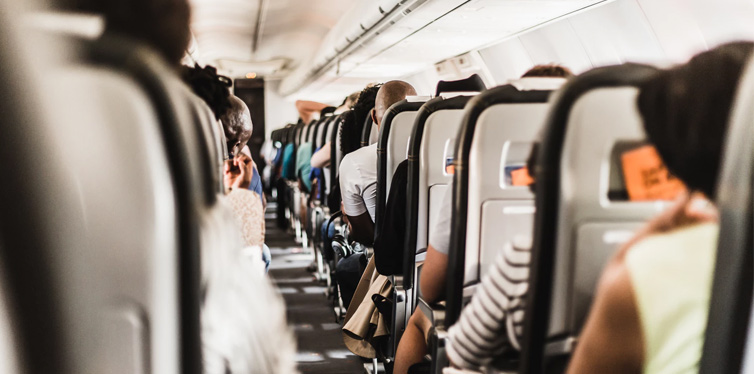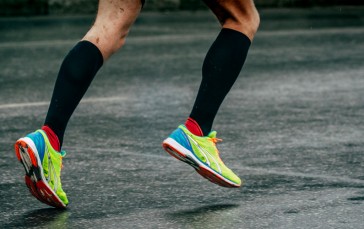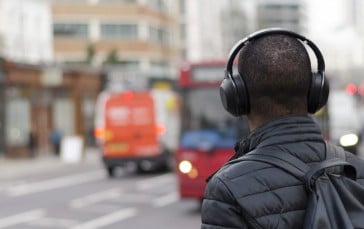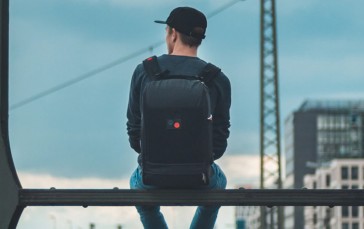How To Avoid Jet Lag
There is something exciting and amazing about traveling the world, but little things that can make it challenging to reach your next travel destination, and being able to avoid jet lag is one of those things. You will forget about the warm fuzzies you experience on those long-haul flights when the dreaded jet lag strikes you hard and make you feel more like a zombie. The good thing is that you can find ways to avoid the sleep-deprived stage by planning ahead of your flight and listening to what your body clock says. Let’s find out more about it.
What is jet lag?
Our body and mind are accustomed to a set routine of sleeping, eating and other natural activities. We sleep at a certain time, eat, exercise, play – everything at almost the same time every day to keep us healthy. These routines are called as circadian rhythms. When we travel by flight (jet) to a different time zone, whether it is ahead or behind ours, the whole routine gets messed up as we strive hard to adjust to the new time zone (lag).
Due to jet lag, most people experience stress, tiredness, indigestion and bowel problems. Loss of appetite, dehydration and absent-mindedness are some other symptoms from a long list, which can never be comprehensive since symptoms present differently depending on factors as age, health and stress levels.
If you are on a long international flight, you are sure to face the wrath of jet lag. Whilst airlines are providing a lot of comfort for the travelers such as variable lighting, serving meals at travelers’ preferred times and encouraging in-flight stretches and exercises even in economy, you are still going to need more help to be rid of the scourge of travelers that is jet lag.

1. Rest Well Before Travel
You already know your travel schedule. Keep a couple of days before travel for yourself. Avoid last-minute parties, heavy shopping or having friends over, so that you can properly rest before you travel. Do most of your packing well in advance. Keep the last moment for the most urgent things that might crop up to keep your stress levels to the minimum. Plan ahead with work and chores to make sure you have as little left to do as possible in a final couple of days before departure.
2. Use Low Doses of Melatonin
The problem is not with the sleeplessness but with the weird sleep cycle. Your body is tuned into a different time zone and you are out of sync in your long-haul destination. You’re wide awake when you should be asleep and sleepy when everyone around is wide awake. There are two ways to reboot your body clock into your new time zone using a tiny 300 microgram dose of melatonin. That’s the absolute limit with this powerful medicine. Don’t even be tempted to use 1mg more. It’s available at the pharmacy and can be ordered online from Amazon. 150mg or half a tablet is usually sufficient to send you off to sleep.
3. Eat Berries to Keep Yourself Active
Breathing recycled air and being at altitude can dehydrate you and exacerbate the symptoms of jet lag. Your gastrointestinal tract slows down leaving you irritable and bloated and you blood thickens causing headache and fatigue. A quick visit to a farmer’s market and stocking up on berries can help to make the journey a little more comfortable. Berries keep you hydrated and are packed with phytonutrients, antioxidants, fiber, and water. The fiber also helps in regulating the bowel system and the antioxidants reduce the inflammation and heat caused in the body due to travel. Fruits like watermelon and vegetables containing more water like bottle-gourd and lettuce can help too.

4. Reduce Blue Light Exposure at Night
The circadian rhythm is regulated by light stimuli to your SCN, the suprachiasmatic nucleus, located in the hypothalamus. It prompts the body to release hormones to induce sleep or wakefulness. We are exposed to the blue light everywhere via our technology and blue light is a strong signaler of daylight to our brains. Because of this, all blue screen technology is best avoided at bedtime. Blue lights can be anything from the LEDs and fluorescent lights, to the backlit screens of our portable devices, mobile screens and laptops. Using mobiles and iPads at night should be avoided on normal days and especially when the room is dark. When you are already jet-lagged, they will only multiply the problem. Hormonal responses will go haywire and send your body not knowing which way is up when it comes to being awake or asleep.
5. If It’s Still Daylight, Don’t Sleep When You Arrive
Try to tune your routine to local time from when you land. Without doubt, the 12-hour long haul and the day and night problem is the worse. Taking off to arrive at 2 pm, when your body thinks it is 2 am and bedtime is bound to have physical and mental demands. However, loudly your comfortable hotel bed is calling you, resist. Sleeping now just leaves the problem to deal with tomorrow, which can seriously upset your plans and your system. Fight the desire to sleep for as long as you can, aim for turning in at what would be your normal bedtime according to local time.
6. Time Your Meals As Per The Local Time
Part of the jet lag battle is to do with your perception of time. Changing your watch and phone to local time as you land is a good start to reset your whole body clock. Another way tune in is to eat at local meal times. Again, begin as soon as you can. Coffee will help stave off the need to sleep and eating will give you the energy to keep yourself occupied and distracted as the hours pass. It takes about six to eight hours for a normal person to metabolize caffeine, which means a coffee at 3 pm local time, can help you stay awake till 10 pm, which is a sensible time to doze off.

7. Enjoy Dinner With Carbs
This is the seasoned traveler’s biggest tip. Foods like pasta, rice, potatoes help you sleep better as they make the sleep-promoting amino acid tryptophan available readily for your brain. Poultry and fish are also high on tryptophan. Consider having these for your dinner and supplement them later in the night by having a snack of cherries before bedtime. Cherries contain melatonin which is our body’s natural sleep hormone. Bananas also contain potassium and magnesium that help with falling asleep and staying that way. Having a glass of milk with your fruit converts the tryptophan into melatonin because of the calcium content.
Other Quick Tips to Help You Avoid Jet Lag
You can certainly try the tricks mentioned above, and they may work great for you, as they have for others, but there are some other ways to avoid being in that zombie-like state. For instance:
- Consider buying compression socks when you’re a frequent traveler. You may also get good results from compression tights, as they work great to promote blood circulation and keep you comfortable throughout the flight.
- Consider trying in-flight yoga poses to avoid feeling bad after you land. It is natural to feel self-conscious about stretching in a flight, but understand that self-preservation should be your first priority. Trying some yoga poses right next to the bathroom won’t hurt anyone but benefit you immensely.
- Consider drinking hot water with lemon. You should drink it before your flight and do the same when during your flight, as it is going to help you feel more relaxed. Experts believe that the lemon contains certain oils that promote relaxation.
- Be sure to wear comfortable clothing during your flight, and don’t forget to turn on your meditation playlist to get power naps on your way to your next destination in another part of the world
The fact of the matter is that keeping yourself in a relaxed state during your flight and taking steps to minimize symptoms related to jet lag will help you feel better and make you a more confident traveler as well.










